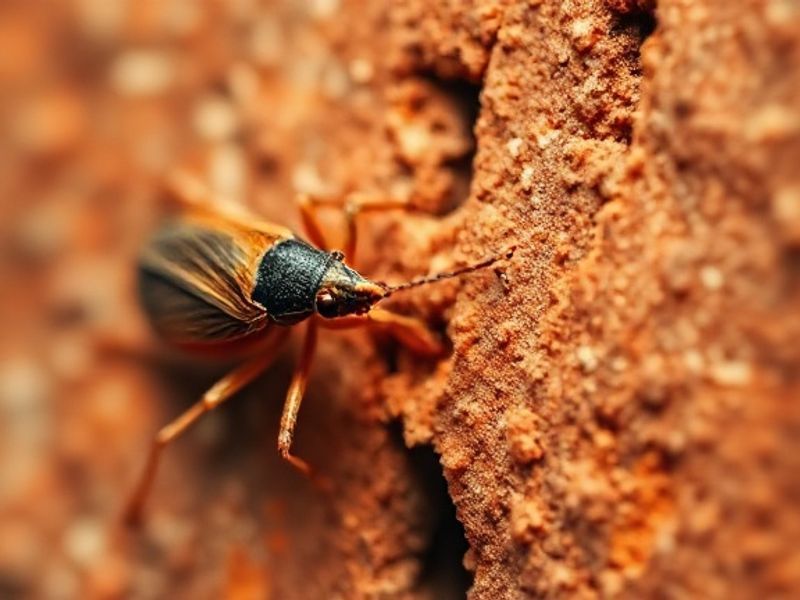Global Smooch of Doom: How Kissing Bugs Quietly Foreclose on Hearts Worldwide
The Kiss of Debt – How a Tiny Hematophage Became the World’s Most Understated Debt Collector
By the time you finish your morning flat-white in Brooklyn, a silent collection agency has already crawled out of a crack in a mud-brick wall in Cochabamba and bitten a sleeping child just above the lip. The agent’s calling card: a parasite called Trypanosoma cruzi, the business end of the so-called “kissing bug.” In the decades it takes that child’s heart muscle to turn into something resembling wet cardboard, the bug’s work will have quietly expanded onto five continents—no passport required, no visa fees, no awkward customs declarations of “1× bloodsucking insect, purpose: existential terror.”
Chagas disease is, politely, the neglected tropical disease’s neglected tropical disease. The World Health Organization estimates 6–7 million infected people worldwide, with another 75 million at risk. Roughly 12,000 die each year, mostly in Latin America, but the bugs have upgraded their travel habits. Climate change has handed them new real estate: the southern United States, pockets of southern Europe, and even parts of Australia. If you thought globalization was just about shipping jobs to wherever labor is cheapest, congratulations—parasites got the same memo.
The vector, Triatominae, is the insect equivalent of that one friend who insists on a goodbye kiss and then robs your wallet. It feeds at night, often around the mouth (hence “kissing”), and then, in a flourish of evolutionary spite, defecates next to the bite. The sleeping victim, in an unconscious gesture of cooperation, rubs the infected feces into the wound. It’s the only known case where humanity’s habit of touching its face actually accelerates natural selection—against us.
For the first few decades, the disease politely minds its own business. Then, like a Ponzi scheme that finally matures, 30 % of victims develop fatal heart or digestive complications. The kicker? Most never knew they were infected, because why screen for something that sounds like a regional folk dance? Meanwhile, blood banks in non-endemic countries discovered Chagas antibodies in donors who’d never left Madrid or Los Angeles. The bug had simply moved in with luggage, climate-controlled apartments, and the unerring instinct of any good squatter to find the rent-free crevices.
International response has been a masterclass in bureaucratic inertia. A course of benznidazole or nifurtimox costs roughly $50–$100 to manufacture, but by the time it reaches a patient via the pharmaceutical scenic route, the price inflates like Argentine inflation figures. Patent thickets, limited national programs, and the fact that victims are overwhelmingly poor, rural, and voiceless, ensure the market remains what economists technically call “a bummer.” The Drugs for Neglected Diseases initiative has tried crowdfunding R&D like a desperate indie band, but it turns out tropical diseases lack TikTok influencers.
Still, there is progress—of sorts. Argentina screens newborns; Colombia fumigates houses; Japan screens immigrants from Latin America, which is diplomatic code for “we’d rather not have surprise cardiomyopathy in our bullet-train workforce.” The Pan American Health Organization recently launched a dashboard so officials can watch the disease spread in real time, because nothing says 21st-century governance like a colorful map of creeping biological doom.
And yet, the broader significance may be philosophical. Chagas is a quiet reminder that in an age when billionaires race to Mars and algorithms predict our next snack, we remain bite-sized morsels in a planetary food web. It’s also a geopolitical equalizer: unlike COVID-19, which shuttered borders, Chagas slips through unnoticed precisely because it is slow, silent, and embarrassingly unphotogenic. No headlines, no panic, no trending hashtags—just a lifetime mortgage on the human heart, underwritten by an insect the size of a sunflower seed.
So next time you swipe right on that cute international traveler, remember: love may be fleeting, but some kisses accrue interest for decades. Sweet dreams.







